For 30 years, Youth Care Treatment Center in Utah has been a premier provider of academics program for adolescents or teens who are struggling with substance abuse, addiction, and a wide range of mental health issues so they don’t have to fall behind in school.
Academics Program Overview
The academic program at Youth Care, a treatment center in Utah, for children is accredited through the Northwest Association of Schools and Colleges and is designed to meet students’ individual needs. Our certified teachers are trained to work with gifted students, students with learning difficulties, and students with behavioral difficulties. Our academic program has one main goal – to prepare our students to be successful in future learning whether it is in a private, public, or post-high school setting.
At our behavior modification program, teacher/student ratios, individual class schedules, behavior modification programs, multi-disciplinary teams, study skill programs, and hands-on experiences are implemented to produce exemplary students who are prepared to continue their education.
One of the academic program’s greatest strengths is a high ratio of teachers to students. This ratio allows each student the necessary time, attention, and direction to develop academically. The student to staff ratio is four to one. Throughout the educational program school day, there is a certified teacher and a teacher’s assistant present with the students in the classroom. Additionally, there is a Certified Special Education Teacher to assist with students’ specific learning needs.
Individual Class Schedules
When a student is enrolled in our academic program at Youth Care, the teacher completes an educational assessment by interviewing the student, the student’s former school, and parents. This assessment identifies the student’s current schedule, past performance, learning strengths and weaknesses, motivation level, and special needs. An individual class schedule is formulated from this assessment. Our academic program curriculum is aligned with the Utah State Core Curriculum and offers over 60 class offerings, and arrangements can be made for special classes outside of the scope of offerings by our residential programs.
Behavior Modification Program
In many regular therapeutic boarding schools at least 60 percent of a teacher’s teaching time will be lost to classroom discipline – not at Youth Care. Our behavior management program is directly linked to the student’s therapeutic behavior management plan. This means that the student’s behavior and completion of assignments are tied to all activities and privileges. Additionally, our teachers are supported by psychologists, social workers, and primary therapists, who are on site and ready to deal with issues that are beyond the scope of the academic program.
Multi-Disciplinary Team
Our professionals in our academic program at Youth Care believe academic success is a therapeutic intervention. While enrolled in our programs, adolescents or teens continue to earn credits, increase knowledge and skills, and work towards the future. For this reason, Youth Care students are enrolled in school for a full day curriculum in our academic program. The students attend classes instead of just working on individual packets, and the therapeutic team coordinates efforts with the academic team in our programs. Teachers, special educators, social workers, psychologists, primary therapists, teacher aides, and recreational therapists meet at least once a week to discuss each student’s progress and success and to design appropriate treatment and educational goals that are supported and implemented by all Youth Care Staff.
Study Skills Program
Students in our academic program not only learn – they are taught HOW to learn. As part of the regular academic program’s curriculum, students are taught techniques such as memorization skills, outlining, organizational skills, assignment tracking, note-taking, and steps for studying for a test. All of these skills prepare the student to be more successful in the next step of education.
Hands-On Learning
Learning takes place in many ways. In most schools, students learn through lecture or through reading textbooks. Our academic program goes further. We help students experience learning. Since we have so few students, we are able to schedule frequent field trips, hands-on programs such as math manipulatives, and in-class projects such as plays or guest speakers that relate to current areas of study. These experiences provided by our academic program not only help students experience learning but often help students understand how classroom work relates to life. No matter what the needs of the adolescent, the academic program can help the student reach his or her potential. Whether working one on one with a child, providing individual class schedules, implementing behavior modification programs, working with multi-disciplinary teams, teaching study skills or creating hands-on learning, the Academic staff is erecting an educational foundation for each student.
The teachers in our academic program at Youth Care, a treatment center in Utah, work closely with the students to help them to achieve their goals, whether it is high school graduation or passing the GED. Many students earn their high school diploma while at Youth Care. From there, students may explore various post-secondary options while they are still in the academic program.









